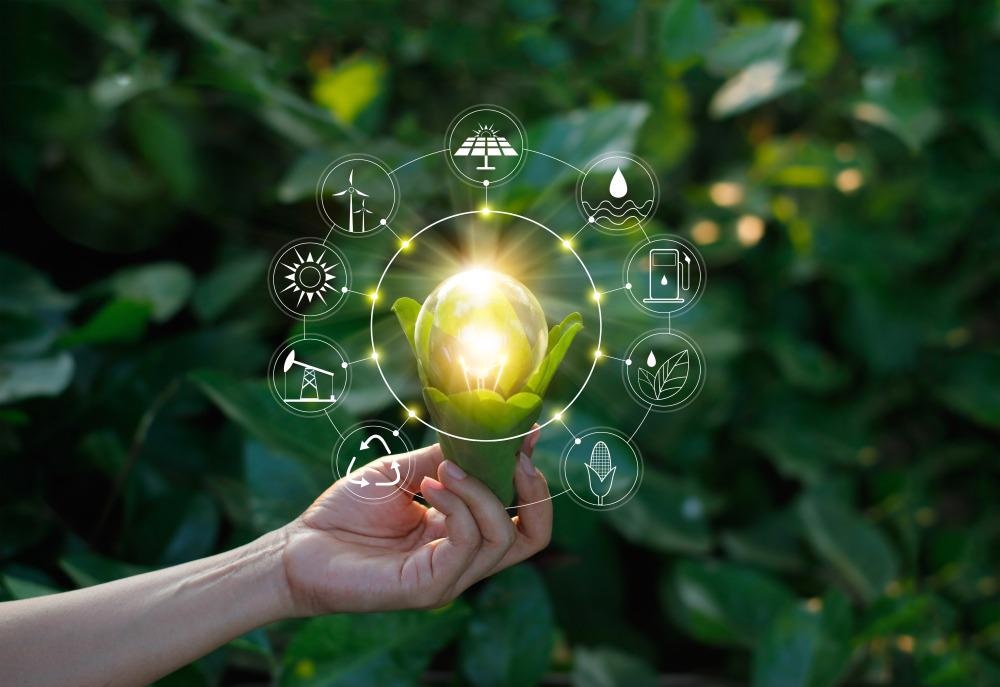May 4 2021
“Co-production” and “co-creation” are terms that have been attracting a great deal of attention. And these terms indicate a possibility for laypersons to take part in decision-making processes that impact their lives.

Image Credit: PopTika/Shutterstock.com
Now, a new study headed by the International Institute for Applied Systems Analysis (IIASA) has investigated options for empowering communities as a key driver for shifting the focus from awareness about the necessity to change energy systems to participation and action.
The climate and energy policies of the European Union (EU) for 2020 to 2030 need decarbonization of the energy market. As such, EU member nations are working on several major goals, such as greater use of renewable energy, greater energy efficiency, and more improved energy security across the EU.
The effective implementation of policies that sustain the achievement of these objectives would not only lead to a change in energy systems but would also result in the transition of socioeconomic conditions. This will depend on technical and economic factors, and also behavioral aspects, like individuals’ attitudes toward this transition.
In the new study recently published in the Energy Policy journal, Nadejda Komendantova, the Cooperation and Transformative Governance Research Group Leader from IIASA, and her collaborators investigated the possibility for polycentric governance—a system that involves co-production at different levels and multiple centers of decision making.
In a system like this, energy becomes a common good instead of a public or a private one. Opportunities are provided by polycentric governance for the co-production of energy policy through numerous stakeholder groups.
The new study particularly focused on present-day attitudes toward renewable energy sources among the citizens of two supposed Climate and Energy Model (KEM) areas in Austria, their willingness to take part in decision-making processes, and their extent of awareness about policy interventions for energy transitions.
Emerging technologies and changing attitudes towards energy generation, transmission, and distribution create various options that facilitate participation in energy transitions.
Nadejda Komendantova, Cooperation and Transformative Governance Research Group Leader, International Institute for Applied Systems Analysis
Komendantova continued, “The emergence of distributed energy systems, which might lead to polycentricity in the governance of such a transition, also creates a need to reframe the discourse from social acceptance of certain technologies, towards engagement, and from focusing on particular technologies, to a focus on social innovations and new forms of governance.”
This approach is not about providing information and educating the public; it is about listening to people and providing them with a variety of options and alternatives to make choices about services that affect their communities.
Nadejda Komendantova, Cooperation and Transformative Governance Research Group Leader, International Institute for Applied Systems Analysis
Although both KEM areas—Amstetten and Freistadt—have committed to include a high level of renewable energies (up to 100%) in their energy mix and have set up ambitious objectives to realize this, one area already had a system in place that enabled the residents to take part in decision-making processes related to energy transition in their locale, while the other area did not.
The investigators performed a large-scale survey that involved about 2,000 respondents, who represented all social groups in both these regions. They observed that the potential to take part in decision-making processes, in fact, increased the respondents’ confidence in both the decision-makers and the process.
These results further indicate a willingness to pay up to 10% more for electricity generated from renewable energy sources when the respondents have a choice to participate in decision-making processes, and also indicate an increase in the level of awareness about energy transitions.
Fascinatingly, having a choice to take part did not increase the number of individuals who, in fact, took part in decision-making processes on energy transitions, but having a choice to take part increased the level of confidence toward policymakers who adopt energy transition.
The researchers believe that the respondents’ willingness to utilize renewable energy sources is pushed to an equal extent by concerns about ongoing climate change and the consideration that these energy sources would allow them to become less reliant on energy providers.
In this respect, the investigators pointed out that this does not necessarily imply that individuals would need to generate their own energy, for example, by utilizing residential solar panels, but rather that renewable energy is generated in their own area, which prevents the necessity to import it from other places.
The analysis also found that a large number of individuals who would prefer to take part in decision-making processes would also like to be involved in the process of choosing the site or the technology for the renewable energy project, while taking part in funding the projects was the least preferred option.
When people indicated that they were not willing to participate in decision-making processes, this was mainly because they felt they didn't have adequate information or time. The number of people who didn't want to participate because they thought that participation is not important was minor. Overall our results confirmed the willingness of people to participate, but conditions for participation should be created.
Nadejda Komendantova, Cooperation and Transformative Governance Research Group Leader, International Institute for Applied Systems Analysis
To ease citizens’ participation, specifically from regions that are aiming to move to sustainable energy systems, the investigators suggested that targeted information campaigns can be produced and shared through reliable media channels to inform the citizens about projects that impact them.
Besides this, there is a greater need to better interpret the role of emerging information channels, for example, social media in energy transitions and also other digital options that are emerging to increase the stakeholders’ willingness to intensely participate in energy transitions and tackle concerns about current conditions.
Journal Reference:
Komendantova, N., et al. (2021) Public attitudes, co-production and polycentric governance in energy policy. Energy Policy. doi.org/10.1016/j.enpol.2021.112241.